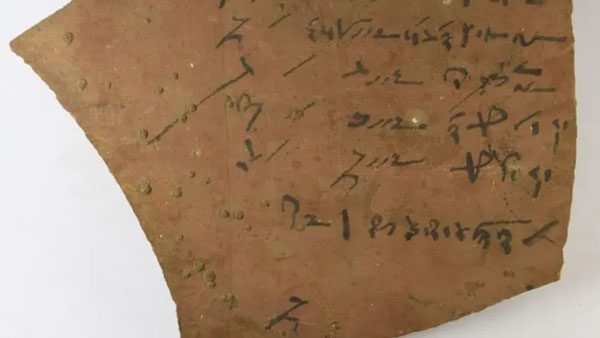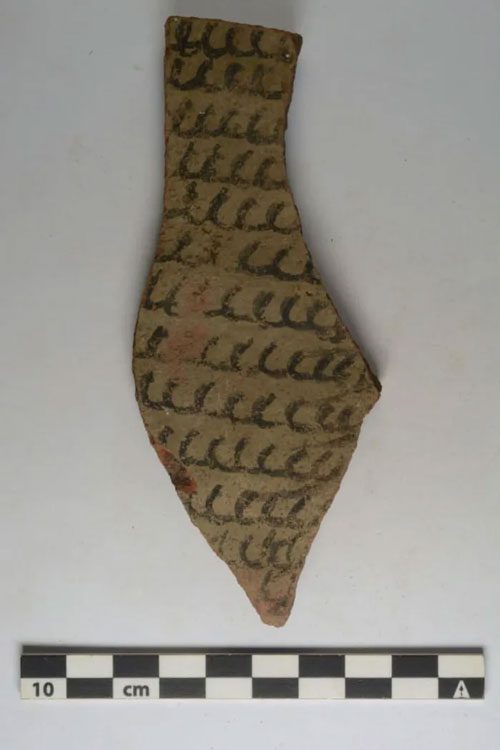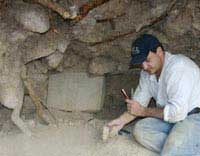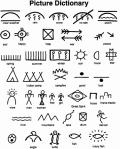Archaeologists have discovered 18,000 pieces of pottery inscribed with detailed accounts of life in ancient Egypt. These artifacts also reveal the methods of punishing misbehaving students from 2,000 years ago.

One of the ancient pottery shards uncovered. Photo: CNN
CNN reports that these 2,000-year-old pottery pieces include writings related to commerce, receipts, and educational content.
Researchers from the University of Tübingen in Germany are conducting the excavation of these artifacts at Athribis, an ancient settlement located 200 kilometers north of Luxor.
These pottery pieces, known as “ostraca,” are remnants of jars or containers that ancient Egyptians used as writing materials. They wrote on these jars using reeds or hollow sticks.

Many shards have similar symbols written on both sides. Photo: CNN
Professor Christian Leitz, who leads the research, stated that many of the pottery pieces originated from an ancient school. He emphasized: “There are lists of months, numbers, grammar exercises, arithmetic problems, and a bird alphabet where each letter corresponds to a bird whose name begins with that letter.”
Additionally, hundreds of pottery fragments feature repeating symbols on both the front and back. Archaeologists believe this is evidence that misbehaving students were punished by repeatedly writing these lines.
According to the University of Tübingen, the discovery of such a large quantity of “ostraca” is rare. Located near the city of Sohag on the west bank of the Nile River, Athribis has been a site of excavation for over 100 years. However, in-depth research in this 30-hectare area was initiated in 2003 when the University of Tübingen collaborated with the Egyptian Ministry of Tourism and Antiquities to implement the Athribis project.





















































